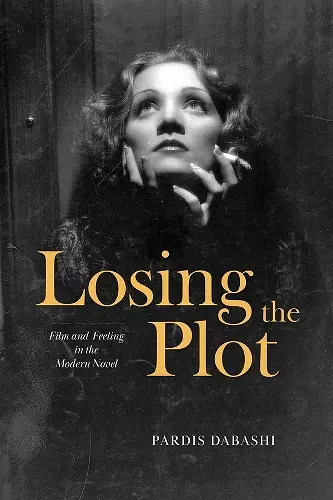Losing the Plot
Film and Feeling in the Modern Novel
Format:Paperback
Publisher:The University of Chicago Press
Published:28th Nov '23
Should be back in stock very soon

An examination of the relationship between literature and classical Hollywood cinema reveals a profound longing for plot in modernist fiction.
The modernist novel sought to escape what Virginia Woolf called the “tyranny” of plot. Yet even as twentieth-century writers pushed against the constraints of plot-driven Victorian novels, plot kept its hold on them through the influence of another medium: the cinema. Focusing on the novels of Nella Larsen, Djuna Barnes, and William Faulkner—writers known for their affinities and connections to classical Hollywood—Pardis Dabashi links the moviegoing practices of these writers to the tensions between the formal properties of their novels and the characters in them. Even when they did not feature outright happy endings, classical Hollywood films often provided satisfying formal resolutions and promoted normative social and political values. Watching these films, modernist authors were reminded of what they were leaving behind—both formally and in the name of aesthetic experimentalism—by losing the plot.
“Reevaluating one of the most familiar critical truisms about the period, Losing the Plot is an erudite, elegant, and insightful exploration of modernism’s ambivalent relationship to plot. Reading Larsen alongside Garbo, or Barnes alongside Dietrich, Dabashi shows us how the encounter with commercial narrative cinema allowed modernist writers to negotiate the double feelings of repudiation and longing for stability and coherence associated with the closure and teleology of plot.” * Dora Zhang, University of California, Berkeley *
“Losing the Plot is an extremely ambitious book, one that aims to fundamentally rewrite and revise our understanding of modernist aesthetics in film and literature. By recasting plot as a modernist fantasy, and then by showing how cinema served as a model of that fantasy, Dabashi is able to provide an entirely original way of thinking about the relation between cinema and modernism, and indeed about modernism itself.” * Daniel Morgan, University of Chicago *
ISBN: 9780226829258
Dimensions: 229mm x 152mm x 25mm
Weight: 426g
304 pages